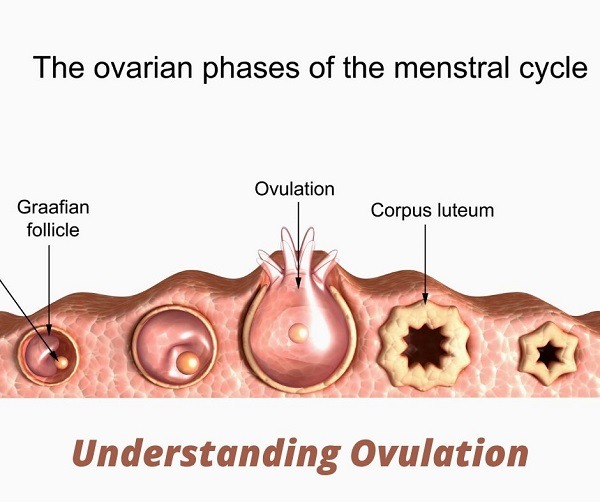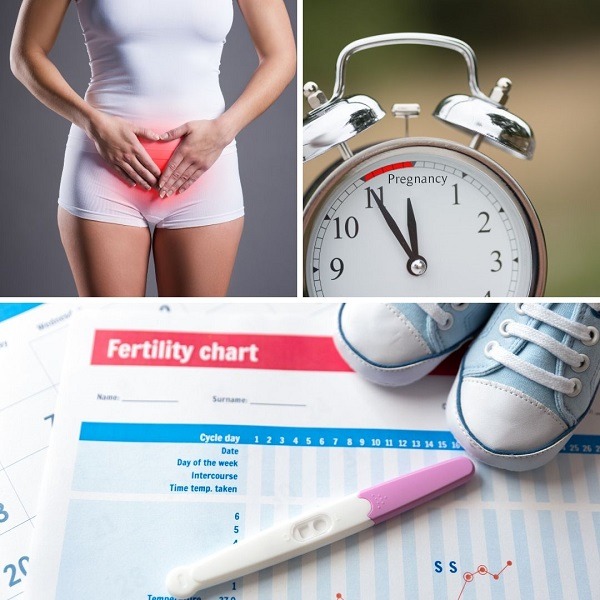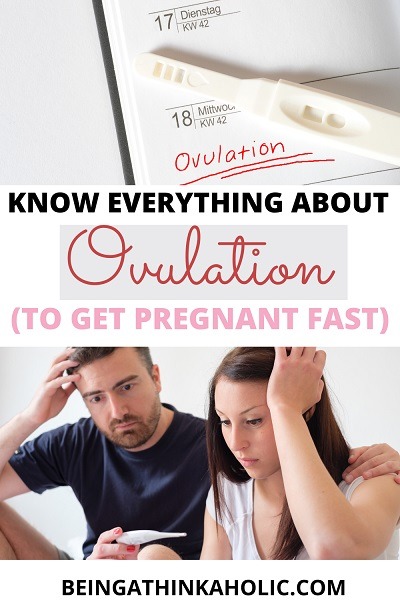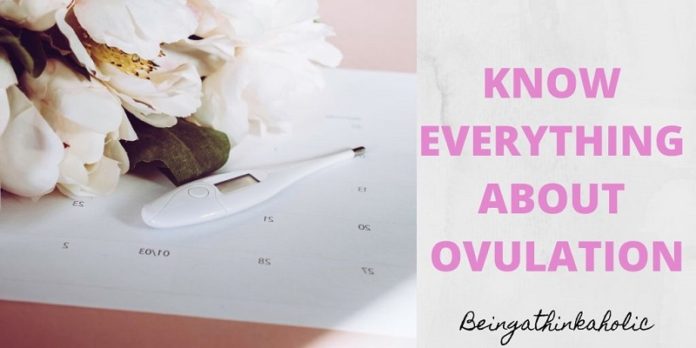Do you like most couples think it is easy to conceive a baby? Have you like many struggled to conceive but kept quiet and cursed yourself?
I still remember when we decided to start trying to conceive a baby, we both as a couple had a very vague idea about the so-called “fertile period”. We calculated on our own and tried for months but after no success went to a doctor.
On our first visit, the gynecologist explained the whole process of how to conceive a baby and that is when I realized how important it is to know the ovulation process when you are trying to get pregnant and conceive a baby. I think there are many like me who have an idea but do not know all the details. So, if you are trying to conceive, read on to know about ovulation.
When you decide to conceive a baby, there are many new things which you need to learn and follow. We all learned in our Biology classes about the reproductive system and ovulation. It is possible you might have not even bothered about it after that, but now is the time to understand it. Knowing about ovulation is very helpful if you are planning to conceive.
Not being able to conceive, can be very disappointing. If you are in that boat, you must read the post, Tips to Handle the Disappointment of Not Conceiving.

Table of Contents
What is Ovulation?
For those who do not know, ovulation is the process where your ovaries release one mature egg every month and send it to the fallopian tubes where it can get fertilized with the sperm. As this is a short window, knowing when you are ovulating helps.
Every month, there is one egg that matures in one of the two ovaries of a woman. Once the egg is released it goes to the tubes. By this time the lining in the uterus has thickened and is ready to receive the fertilized egg. If the fertilization does not happen and the woman does not conceive, the blood and the lining shed and this is called the menstrual cycle.
When Does Ovulation Occur?
On average, the menses of a woman lasts 28-32 days. The first day of the cycle is the first day of the menses and mostly the egg releases anywhere between the 12th and the 16th day from this date. As the cycle of each woman varies, the ovulation also varies and thus, going by a standard is not correct.
If one wants to know their ovulation date tentatively, they first need to track the cycle for 2-3 months.During this time the estrogen builds up in the follicles and this causes the surge of luteinizing hormone (LH). Once the egg reaches the tubes, the empty follicle which is known as the corpus luteum produces another hormone called progesterone which ensures no other egg releases during the cycle.
Fertility and Ovulation
The egg can be fertilized for 12 to 24 hours after being released. This is a short time, but the sperm can stay in the body for 3-4 days after intercourse. Thus, the most fertile window is 5-7 days post your menses.
If during this time, the fertilization happens, the egg will take a week to travel from the fallopian tubes to the uterus, and then will implant in the uterus and that is when the baby starts to grow. If there is no fertilization, the egg disintegrates and can either pass out during the menstrual flow or can be absorbed into the body again.

Signs of Ovulation
It is essential to know when you are ovulating and thus, knowing the signs and keeping a track is essential. Some of the ways in which you can know you are ovulating are:
- Track your menstrual cycle for a few months and calculate your ovulation dates. This is only helpful for people who have a regular cycle. You can also try and use the ovulation kits
- Mild cramps or pain in the lower abdomen
- The cervix opens a little and is softer
- The basal body temperature (the temperature reading when you wake up) is the lowest
- The mucus and discharge is clearer and thinner
Ways of ovulation tracking
If you are not able to figure out the exact date of ovulation, then there are some other ways to do the same.
1: Ovulation Calculator & Calendar – Determine Most Fertile Days
This ovulation calendar is specifically designed so that the woman can predict her most fertile days. There are many apps and websites which have this available. You will need to put in the first day of your last menstrual cycle, the duration of the cycle and some also ask for your luteal phase.
2: Ovulation Predictor Kit
These ovulation predictorkits can tell you about 12-24 hours before the actual time of ovulation. They check the LH surge in the urine and can tell you when you are ovulating.
3: Follicular Scan for Ovulation tracking
Not many people know, but there are follicular scans which help in tracking the most fertile period. The ultrasound scans start around the 10th day of LMP and continue till the time the egg is released and it ruptures in the fallopian tubes.
Any woman, undergoing fertility treatment will need to undergo these tests every month. I got them for 11 months too. These scans are also helpful when one opts for IUI and IVF and other treatments.
Not many women know about follicular scans and I was one of them. If you want to know all details of ovulation tracking, read the post,Know Everything About Follicular Scans
Through one or more of the above ways, you can know about the day of ovulation. When there is an LH surge, you can plan an intercourse and this can increase your chances to conceive.
Disorders to Know About
Though all women ovulate, there are some disorders in the whole process which can cause problems in conceiving or lead to infertility.
Polycystic Ovarian Syndrome
The ovaries, in this case, are enlarged and have small cysts which are filled with fluid. These cause a hormonal imbalance and cause problems and disruptions in the ovulation process.
Premature Ovarian Insufficiency
This is seen in some women in their 30s when the production of eggs stops as there is a drop in estrogen levels.
Hypothalamic Dysfunction
This is the case when the production of LH and FSH, which are the hormones which stimulate ovulation, is disrupted.

Understand Tour Body to Conceive a Baby
The doctors try and rule out issues as they proceed with the treatment. There are many lucky people who can conceive a baby naturally and then there are many like me who had problems and were told were suffering from “unexplained infertility”.
Understanding your body and its functions is essential when you are trying to conceive or even when you are pregnant. Ovulation is the first step and knowing all the details about it will help you and your partner. Understanding your menstrual cycle can be confusing, but it is your best tool when you want that little bundle of joy to come and make life beautiful.
Trying to conceive a baby can be a hard journey for some. From someone who went through it, I just have one thing to say, stay positive as miracles take time to happen.





Thank you. You have given very impt information which will be helpful for many women. Even though we know much of it but I really appreciate the finer details that you have given.
Glad you found it helful. 🙂
Glad you found it helpful. 🙂
[…] You may like to read our post, Know Everything about Ovulation […]
[…] is the most important part of conception. Read the post on Ovulation to get answers to all […]
ovulation means your body is working well for fertilization and women must know about them but after reading this article I think nothing is left to know about ovulation and fertilization.